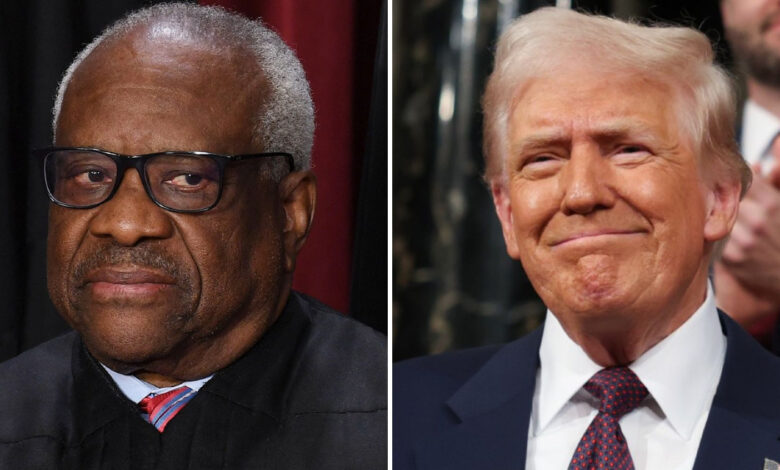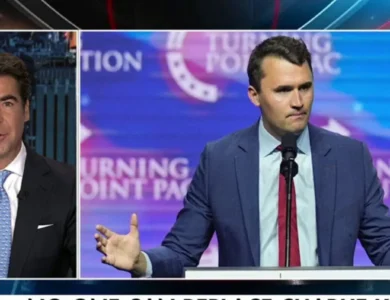Team Trump Responds After SCOTUS Allows Transgender Military Ban To Proceed

The U.S. Supreme Court sided with the Trump administration, overturning a lower court injunction that had prevented the Pentagon’s transgender military ban from going into force, enabling Trump’s order and associated measures to proceed.
The Supreme Court verdict gives the White House a significant win even though it did not address the case’s fundamental merits or President Donald Trump’s Jan. 27 executive order barring transgender service members from the United States military. The president celebrated the ruling with a post on his Truth Social account of a report summarizing the court win.
Justices Sonia Sotomayor, Elena Kagan, and Ketanji Brown Jackson would have dismissed the administration’s appeal, upholding the lower court ruling.
Read more: VIDEO: Judge Flabbergasted as ICE Walks Into Live Hearing – Arrests Illegal Immigrant
Shilling v. United States is a lawsuit challenging Trump’s executive order prohibiting transgender military troops, Fox News noted.
The executive order would direct the Defense Department to revise its guidance on “trans-identifying medical standards for military service” and “rescind guidance inconsistent with military readiness.”
The Trump administration has claimed that further postponing the policy will jeopardize US military readiness, as it expressed to the Supreme Court in a brief late last month.
“Absent a stay, the district court’s universal injunction will remain in place for the duration of further review in the Ninth Circuit and in this Court – a period far too long for the military to be forced to maintain a policy that it has determined, in its professional judgment, to be contrary to military readiness and the Nation’s interests,” U.S. Solicitor General D. John Sauer told the court, urging justices to grant the stay.
Read more: Pray For Trump-Supreme Court News Just Took Everyone By Surprise
Trump administration officials have stated that transgender military policy “furthers the government’s important interests in military readiness, unit cohesion, good order and discipline, and avoiding disproportionate costs.”
The case was promptly challenged in federal court.
Seven transgender military members sued the administration in a Seattle federal court and in Washington, D.C., where U.S. District Judge Ana Reyes grilled Trump administration lawyers in a dizzying line of questioning that invoked shelters, Jesus, and Miss Pac-Man, among other things, before asking the government to push its planned implementation deadline.
The District of Columbia Circuit Court of Appeals later overruled that ruling.
Read more: President Trump Humiliates Democrats With Latest Move – And They’re Furious
In the Seattle case, plaintiffs argued that the executive order “turns away” transgender military members “and kicks them out – for no legitimate reason.”
“Rather, it baselessly declares all transgender people unfit to serve, insults and demeans them, and cruelly describes every one of them as incapable of ‘an honorable, truthful, and disciplined lifestyle, even in one’s personal life,’ based solely because they are transgender,” it continued.
In March, U.S. District Judge Benjamin Settle ordered a preliminary injunction, preventing the government from identifying and dismissing transgender military members as the case progressed through the lower courts.
In his decision granted the injunction, Settle described the rule as a “blanket prohibition on transgender service.” Settle determined that the plaintiffs would likely prevail on the merits of their equal protection, First Amendment, and procedural due process arguments, among others.
Read more: GOP Senator SHOCKS Her Own Party: ‘Not Attached To The Republican Label’
“The government’s arguments are not persuasive, and it is not an especially close question on this record,” Settle wrote.
Settle stated in his ruling that the injunction was intended to “maintain the status quo of military policy regarding both active-duty and prospective transgender service” that existed before to Trump’s Jan. 27 executive order.
The government swiftly filed an appeal with the 9th Circuit, demanding that the court halt Settle’s ruling.
The administration argued in court filings that the policy “furthers the government’s important interests in military readiness, unit cohesion, good order and discipline, and avoiding disproportionate costs.”
On March 31, a three-judge panel consisting of Judges Atsushi Wallace Tashima, a Clinton appointment, John B. Owens, an Obama appointee, and Roopali H. Desai, a Biden appointee, refused the administration’s request for a stay, which was overruled by the Supreme Court on Tuesday.
Read more: AOC Fears Arrest As She Has Not Heard Back From Department Of Justice
Shilling v. United States is only one of several lawsuits contesting the Trump administration’s military ban. It comes as Trump has used his first few days in office to reverse significant Biden-era programs, including attempts to promote a diversity, equality, and inclusion, or DEI, agenda.





